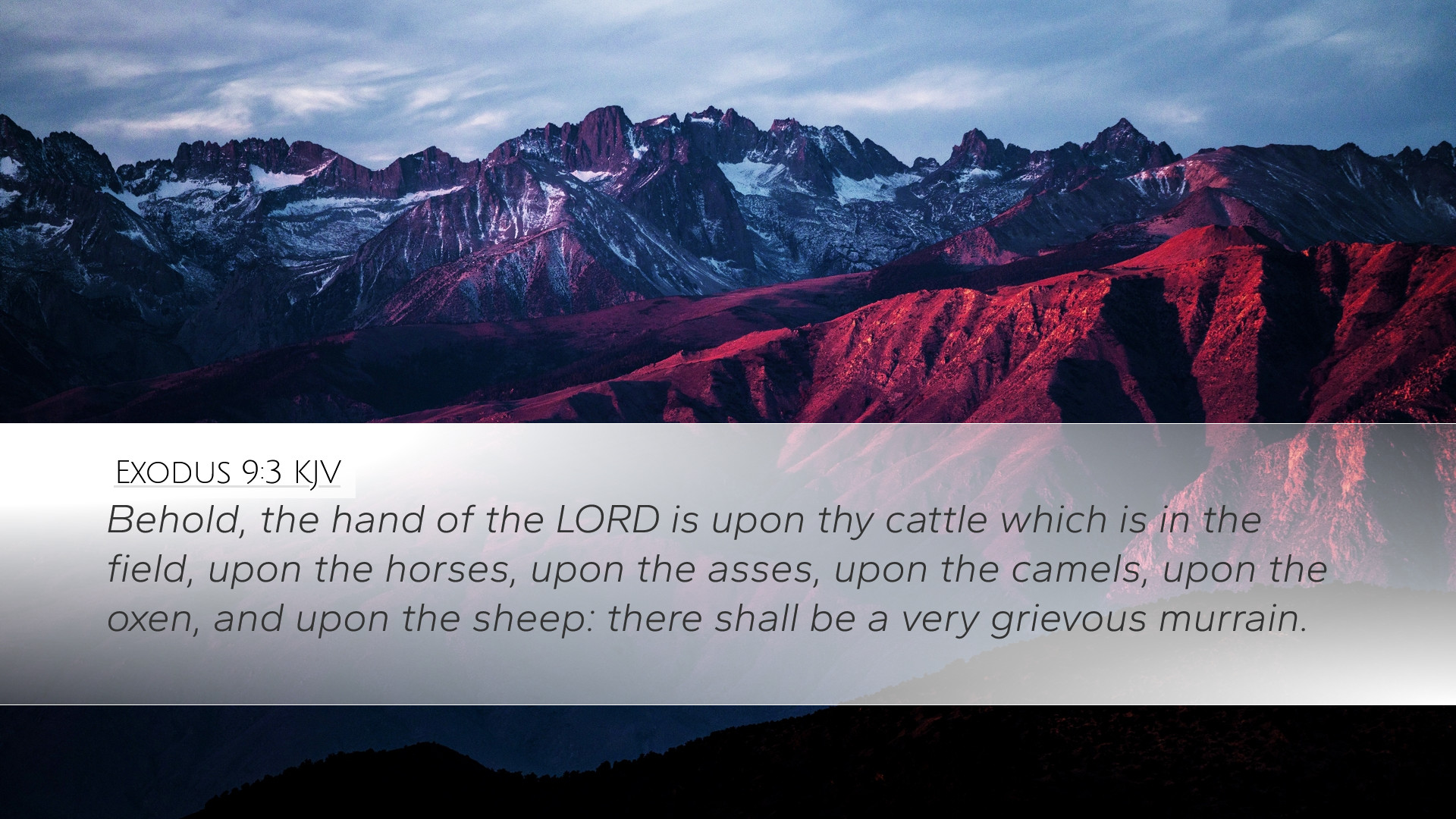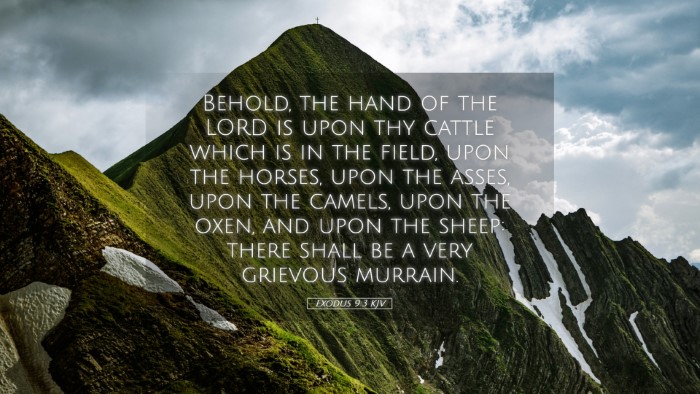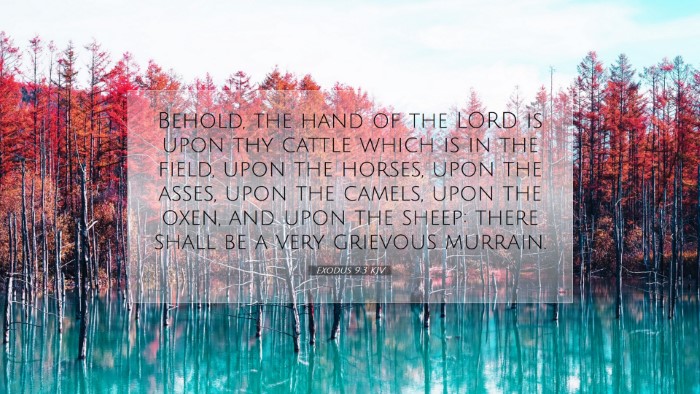Commentary on Exodus 9:3
Exodus 9:3 (KJV): "Behold, the hand of the LORD is upon thy cattle which is in the field, upon the horses, upon the asses, upon the camels, upon the oxen, and upon the sheep: there shall be a very grievous murrain."
Introduction
This passage is part of the narrative surrounding the plagues that God inflicted upon Egypt. Specifically, it refers to the fifth plague, the death of livestock. Within this text lies rich theological implications and reflections on God's sovereignty, judgment, and mercy.
The Meaning of the Plague
In this passage, God warns Pharaoh of a murrain—a severe disease affecting livestock. This reference stresses the direct impact of God's judgment upon the economic and agricultural systems of Egypt.
- Divine Sovereignty: The plagues illustrate God’s control over creation and His authority to execute judgment. As Matthew Henry points out, these events demonstrate that God is not merely a passive observer but actively involved in the affairs of humanity.
- Judgment on False Idols: Adam Clarke notes that the Egyptians notoriously worshipped various animals, including cattle. The murrain thus serves both as punishment and as a repudiation of their idolatry, showcasing that the true God holds sway over what they consider divine.
The Nature of the Judgment
The specific mention of different types of livestock indicates a comprehensive judgment on all forms of economic sustenance. Albert Barnes elaborates that this particular murrain would disrupt every stratum of life in Egypt, emphasizing the seriousness of turning away from God.
- Impact on Society: The losses incurred would plunge Egypt into hardship, causing not just immediate economic troubles, but also highlighting the futility of relying on false gods.
- Symbolism of Livestock: Livestock represented wealth and power in ancient times. Thus, this judgment symbolizes a challenge to the pride of Egypt’s prosperity.
Theological Insights
The events surrounding Exodus 9:3 invite critical theological reflections on suffering, divine will, and human accountability.
- God's Patience and Mercy: God provided several warnings before executing severe judgments. This is part of His character, allowing time for repentance and a chance for Pharaoh to turn back to Him.
- Moral Responsibility: The admonition serves as a reminder to uphold moral and ethical behavior. The passage reinforces that human actions have consequences—both for individuals and communities.
Responses to God’s Judgment
In light of such judgments, the differentiation between the Egyptians and the Israelites often comes into focus. It emphasizes God’s people as recipients of grace, contrasting with the devastation experienced by those who refuse to acknowledge His authority.
- Call for Repentance: The narrative beckons us to examine our attitudes and behaviors toward God. As pastors and leaders, there is an inherent call to encourage repentance and alignment with God's ways.
- Hope amidst Judgment: The plague, while a stark warning, also offers hope for spiritual awakening. It can be seen as an invitation to acknowledge God's sovereignty.
Lessons for Today
The themes present in Exodus 9:3 resonate with contemporary issues of idolatry, accountability, and divine sovereignty.
- Idolatry in Modern Times: Just as Egypt idolized its cattle, modern society often elevates material wealth and security above God. This passage serves as a warning against such misplaced priorities.
- Divine Sovereignty Today: Believers today are reassured of God's supreme authority over life’s circumstances. Even amidst trials, His judgment can redirect hearts towards repentance and reliance on Him.
Conclusion
Exodus 9:3 serves as a powerful reminder of God's judgment and mercy. The insights from Matthew Henry, Adam Clarke, and Albert Barnes illustrate the multifaceted implications of this verse, calling believers and leaders alike to reflect on their own lives in the light of God's ultimate authority and mercy.


